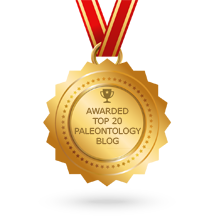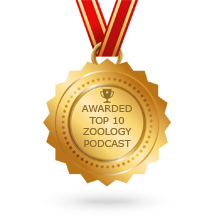Episode 135/136: Burmese Amber Pt2
Continuing our mini series on Burmese Amber, we now turn our focus to the ethics of working on this fossil material. Can possessing or working on amber from Myanmar ever be considered ethical?
In the first part of this episode, we examine the political context, work around Myanmar’s fossil exportation laws and follow the money back through the trade routes. In the second part we discuss why it’s currently unethical to study Burmese amber, what palaeontologists can do about that, and whether the situation might change in the future.
Joining us to guide us through this process are Nussaïbah Raja (Friedrich-Alexander University Erlangen-Nürnberg) and Dr Emma Dunne (University of Birmingham), authors of a soon-to-be-released study looking at exactly these issues. Both guests co-lead the Pal(a)eoScientometrics project.

a). The number of fossil localities sampled in each country displayed on a tile grid map to avoid distorting the representation of the data that is typical of standard map projections. Two-letter country codes are shown for countries with greater than 10,000 fossil localities. b). Percentage contribution of the top 15 countries to the total fossil data analysed in this study. The colour of each bar represents whether the authors of each country conducted their research domestically (that is, in the same country), in a foreign country, or in a foreign country without collaboration with local palaeontologists.
Via: Raja, N.B., Dunne, E.M., Matiwane, A. et al. Colonial history and global economics distort our understanding of deep-time biodiversity. Nat Ecol Evol (2021). https://doi.org/10.1038/s41559-021-01608-8

a). The parachute index of world countries, where tiles assigned to a country’s code indicate those countries that are mentioned in publications by solely foreign researchers (that is, no local collaboration) b). The 10 countries (with more than 30 publications in our dataset) that are the worst impacted by parachute science. Negative values indicate greater presence of parachute science, that is, research by foreign researchers that does not involve any local collaborators. Light grey tiles represent countries with no available data.
Via: Raja, N.B., Dunne, E.M., Matiwane, A. et al. Colonial history and global economics distort our understanding of deep-time biodiversity. Nat Ecol Evol (2021). https://doi.org/10.1038/s41559-021-01608-8

UN Independent International Fact-Finding Mission on Myanmar
In March 2017, the United Nations Human Rights Council established the Independent International Fact-Finding Mission on Myanmar (IIFFMM) to establish the facts and circumstances of the alleged human rights violations by military and security forces, and abuses, in Myanmar. The mandate of the IIFFMM ended in September 2019. That report can be accessed here: https://www.ohchr.org/EN/HRBodies/HRC/MyanmarFFM/Pages/Index.aspx.
Society of Vertebrate Paleontology Recommendations for Researchers, Research Institutions, and Publishers for Myanmar Amber:
SVP FURTHER INFORMATION ON MYANMAR AMBER, MINING, HUMAN RIGHTS VIOLATIONS, AND AMBER TRADE:
Video: Illicit fossils: the ethical dilemma in protecting the world’s natural history
Other links
For in-depth reports into these issues, featuring many other images of the mines and markets, please follow the following links:
Cover image: Royal Saskatchewan Museum/R.C. McKellar
















